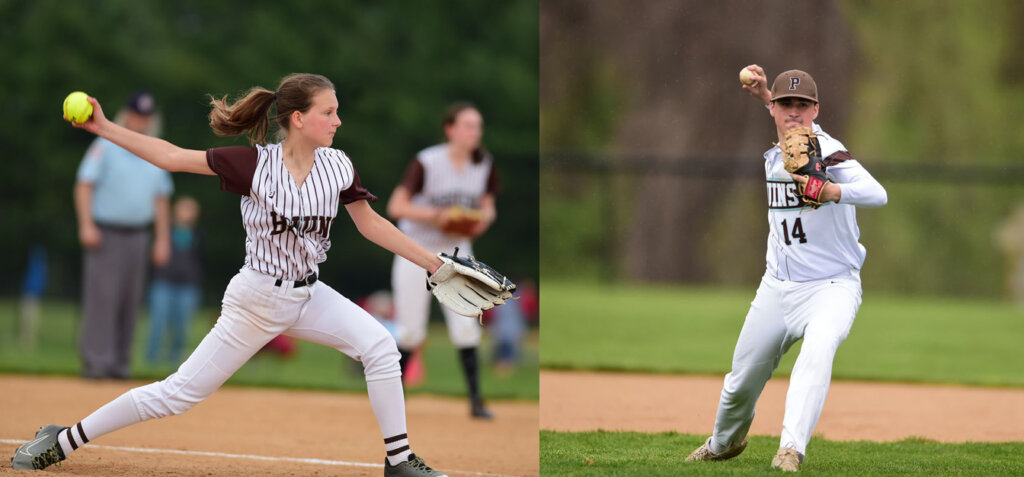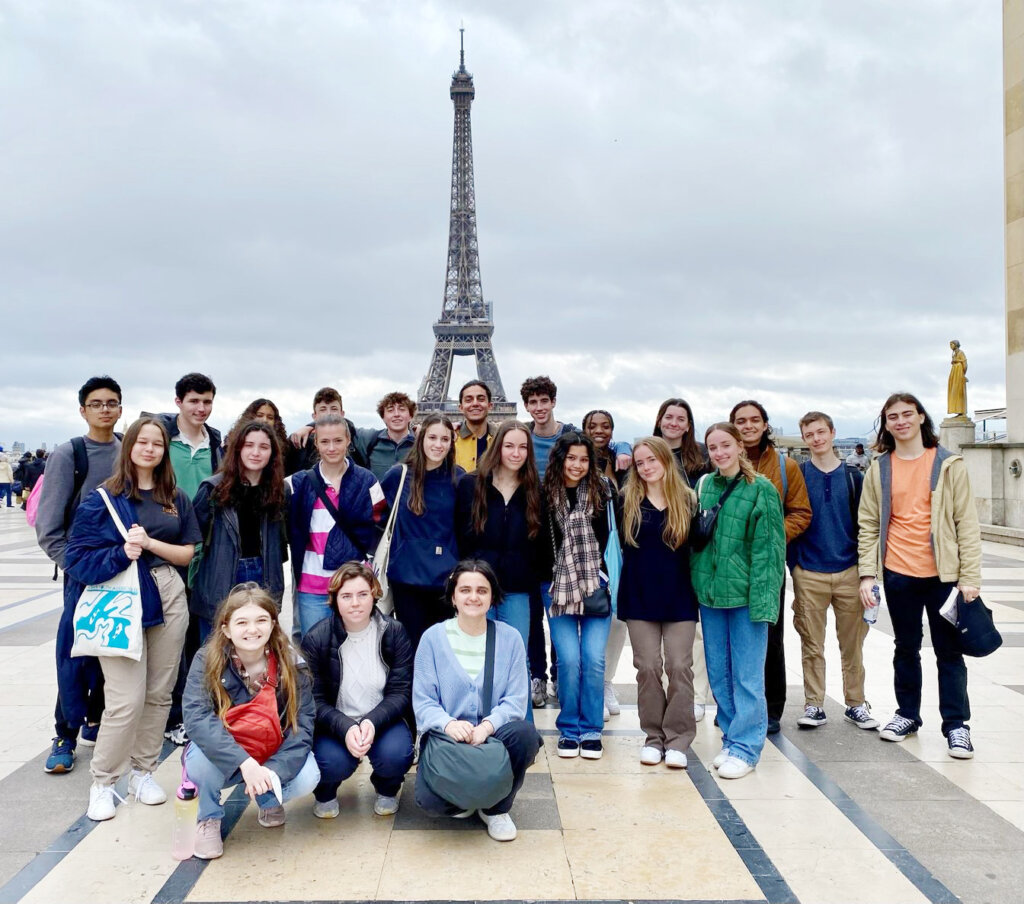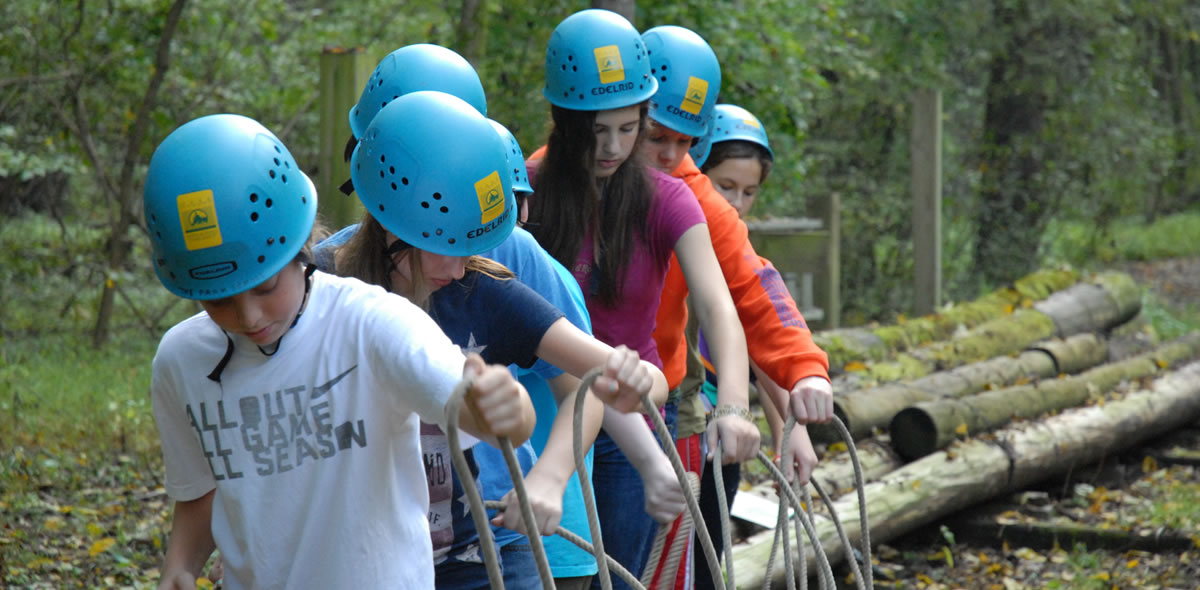February 2012
Park News Feb 2012
| February 10, 2012 | |||
 |
|||
| Lower School | Middle School | Upper School | Athletics | All School | parkschool.net | ||
From The PrincipalsFairness, Understanding, and CitizenshipIn each issue of Park News, we not only report interesting things that have happened throughout the school over the past few weeks, but we also offer a glimpse of the ideas and ideals that shape life at Park. Inspired by the work of our Upper School Civil Rights Trip participants, the recent celebrations and studies of the life of Dr. Martin Luther King, and the commencement of Black History Month, our principals take the opportunity to discuss the notions of fairness, understanding, and citizenship. From interpersonal relationships in the classroom to the study of large-scale movements to advocating for change, our students and teachers develop a true sense of what it means to be a thoughtful, engaged member of the community.Each issue of Park News features, alternately, an address from Head of School Dan Paradis or our three principals, June Bennett, Josh Wolf, and Daniel Bergman. This week, we welcome Lower School Assistant Principal Lisa Sun’s contributions. |
Park News HighlightsK1 and Dr. KingThe Middle School Mind 2012 Civil Rights Trip Sportsmanship at Park Student Directed Plays |
|
 |
||
Lower SchoolFairness and the Developing Child“That’s not fair!” This is a statement that we may often hear from our children. Frequently, it relates to an experience when a child may feel she or he is being excluded or does not have access to something that other children have access to. “She has more cookies than me!” or “He’s not letting me have a turn!” Even our youngest students have a sense of what is equal and what is not. We begin to teach our children about issues of fairness and equity starting with our K1 students, acknowledging that their life experiences can help them make connections with other people who may have also experienced unfairness. Every year following, we continue to foster an awareness and appreciation of the experiences of all people through the curriculum. In the Lower School, issues of fairness and equity may be covered across multiple years, but as the students develop and grow, the teachers engage students in deeper and meatier conversations through a curriculum that is challenging and age-appropriate. Students engage in honest conversations about our history, learn about important historical figures, and contemplate the responsibility that all of us have to help build a more fair and equal country and world. As you will see in the stories below, coinciding with both the observance of Dr. Martin Luther King’s birthday and with the commencement of Black History month, our students have been particularly mindful of the notion of fairness on both the personal and community levels.—Lisa Sun, Lower School Assistant Principal Learning about Dr. Martin Luther King, Jr. in K1 Observational portraits of Dr. Martin Luther King by K1 students. Observational portraits of Dr. Martin Luther King by K1 students.From Kindergarten 1 Teacher, Linda Butler: Young children are fascinated with heroes and people who help others. The K1 class was immediately interested in learning more about Dr. Martin Luther King, Jr.’s life and work. They asked relevant questions and wanted to know more about King as a boy and as a man. We attended the Lower School assembly where facts about Dr. King’s life and the story My Brother Martin by Christine King Farris were shared. In our classroom, we learned more about Dr. King through a very simple felt board story. The felt board story tells of Dr. King’s dream and delivers the message that Dr. King wanted people of all colors to work and play together peacefully. The children were fascinated and concerned that black children and white children could not go to school together. Although our class is not racially diverse, the children could understand that segregation applied to teachers as well. It upset the children that black teachers were not allowed to teach white children. We talked about how Dr. King helped to change that law. Later, everyone in our class drew an observational portrait of Dr. King, some of which are pictured above. The children’s drawings represent the man well. We didn’t stop there. A few days later, we learned that Stradine, our Physical Education teacher, and other Park friends were on the Civil Rights trip to learn more about Dr. Marin Luther King, Jr. We exchanged emails with the group to wish them well and ask questions about their experiences. We are looking forward to a visit from the students who traveled down south soon. We will continue to refer to Dr. King’s work and think about what we can do to make the world a better place.
From Jenn Lauder, First Grade teacher: If you’ve walked by the First Grade pod on a recent Friday morning, you might think you’d been transported to a 1960s-era Civil Rights rally. The three classes have become enamored with two protest songs, “We Shall Overcome” and “If You Miss Me at the Back of the Bus,” and they sing out with such gusto that passersby can’t help but stop to listen: “If you miss me at the back of the bus, and you can’t find me nowhere, come on up to the front of the bus, and I’ll be riding up there.” |
Lower School
|
|
 |
||
Middle SchoolOpening the Middle School MindMuhammad Ibn Arabi, the 12th century philosopher from Al-Andalus (currently Spain), conveyed his profound belief in diversity and in seeing the world through all lenses, with a poem:My heart has grown capable of taking on all forms: A pasture for gazelles, a convent for Christians A temple for idols, a Kaaba for the pilgrim A table for the Torah, a book for the Koran My religion is love. Whichever the route love’s caravan shall take, That path shall be the path of my faith. Respect for diversity is hardly a new concept, and yet the difficulty of honoring different perspectives remains one of our greatest challenges today. And just how difficult is it to comprehend another’s perspective, to walk in another’s shoes, to advocate for causes that aren’t inherently our own? Extremely! Kids-becoming-adults develop awareness and sensitivity to others in a few ways: 1) by exposure to new paradigms of thinking 2) by immersion into often-uncomfortable situations or dialogue 3) by building relationships with those different from themselves, and 4) by learning about how advocacy for others transforms both ourselves and the communities we live in. Park facilitates this kind of growth by helping kids adventure into conversations about stereotype and privilege, by encouraging discussions about cultural identifiers (from gender and race to age and learning styles), by safely immersing our students into unfamiliar situations, and by modeling advocacy in ways that are relevant to Middle School kids. Below are a few examples of ways that we are promoting open-mindedness in the Middle School right now, and helping kids to begin a lifelong devotion to advocacy for others, and a respect for difference. —Josh Wolf, Middle School Principal Recent Middle School Experiences:Seventh grade Language Arts students are currently reading The Absolutely True Diary of a Part-Time Indian by Sherman Alexie. Students are learning about Native Americans, the Wellpinit tribe in eastern Washington State, and grappling with questions about authentic portrayals of adolescents versus the stereotypical ones that are promoted in popular culture. Working on Patricia Va a California. Working on Patricia Va a California.Seventh and eighth Grade Spanish students are reading the novels Pobre Ana and Patricia Va a California. Both combine coming-of-age stories with themes of immigration, classism, and racism. Sixth grade French students watched and discussed Azur et Asmar, a French/Belgian animated tale about cultural and physical differences, prejudice, and superstition. These students also interviewed two native speakers: a male ballet dancer from Paris and a Park School employee from the Ivory Coast. Sixth grade Spanish students watched the film Viva Cuba, and talked about Cuban history: the political, religious, economic, and social fissures in Cuba, daily life, the challenges of the Communist regime, the differences between life in the capital and in the countryside, and racial identities in Cuba and much of the Caribbean. Seventh grade French students watched Etre et Avoir, a documentary film about a year in the life of a one-room school house in rural France. The kids remarked how different school and daily life are for those kids. The film also served to remind kids that France is so much more than Paris. In sixth grade science students examined the Chesapeake Bay Watershed and gained a true understanding of the complexities of protecting this diverse natural resource. Conversations about the subtle differences between environmental problems and environmental issues led students to the notion of compromise—that moving forward requires multiple perspectives and hard choices. That students could use this model to solve problemsoutside of science class was enlightening to the kids! There are two classes in seventh grade life skills that address diversity issues. Our most recent presenter was Head of School, Dan Paradis. He provided an overview of the Park philosophy and highlighted the significance of diversity as a salient goal in both our philosophy and culture. This was followed by a class with the Upper School Mentors in small groups where aspects of our progressive philosophy were brought to life with personal stories. A second class in seventh grade life skills involves a presentation by a Park faculty member explaining her coming-out process and the life changes she experienced in accepting her sexual identity. This class will be followed up with the Mentors, involving a values clarification exercise to make distinctions between sexual identity and gender identity. In a combined Language Arts and Tech project, sixth graders read various novels about kids responding to bullying in schools. They viewed public service announcements and then wrote scripts for PSA’s focusing on positive behavior that would improve our school community (and not necessarily about bullying). Then the students filmed and edited their videos. Topics included acceptance of differences, healthy activity, and not spreading rumors. Eigth grade Social Studies students discuss the dismay that Jews and Christians felt over the multiplicity of gods held dear by the Mesopotamian polytheists. They also learn how the Greeks and Persians both thought that their way of looking at the world in terms of individual freedoms versus order was “correct.” In the same vein, Emperor Ashoka insisted that Buddhism was more appropriate than Hinduism in India. Dialogue and debate are critical in every single class! The students learn why each person (or community) develops a certain identity and then advocates based on that identity. To bring the discussion closer to home, the kids look at how Park’s Progressive goal of “active participation in a democracy” is best served by understanding and also respecting each other’s diverse perspectives. The Middle School Gay-Straight Alliance has been engaging members of the Park Community by sponsoring a “question of the month” box, which asks passersby to submit their anonymous responses to thought-provoking questions about gender and sexuality diversity. Questions have included, “Why don’t straight people have to come out?” and “How do YOU define gender?” and “What are some unwritten rules about gender in our school and what happens if people break those rules?”An upcoming Middle School Assembly will share responses to these questions. Sixth grade math students are reading The Housekeeper and the Professor by Yoko Ogawa. The story, which takes place in Japan, deals with mathematics, growing old with disabilities, and love. In sixth grade life skills class, the kids read a wonderful identity poem by George Ella Lyon called “Where I’m From.” After discussing the poem and the concrete imagery used by the poet to reveal herself and her background, the kids wrote their own identity poems. Throughout the class, they discussed the question “What makes us who we are?” Throughout the conversation, students explored issues of ethnicity, race, gender, sexual orientation, ancestry, class, living spaces, and adoption. Seventh grade French students will soon watch the film La Rue Cases-Nègres, based on the novel by Joseph Zobel. The novel is an account of a young boy raised by his grandmother in a post-slavery, but still plantation-based Martinique. The struggles of the impoverished cane sugar plantation workers are the core subject of the novel. Zobel stated that the novel was his version of Richard Wright’s Black Boy, in that they are both semi-autobiographical (Wikipedia). Seventh grade Social Studies students define the terms “perpetrator,” “bystander,” “target,” and “activist” and discuss these roles in every unit that they study (e.g. The Middle Passage and slavery). Kids learn that everyone ends up playing all of these roles at some point in their lives. In an effort to “lean into the discomfort,” students write journal entries reflecting on specific moments when they played one of these roles (Why were they in that role? How did it feel? What could they have done differently?). Before beginning their activist projects in the spring, students will refer to the eight identifiers for diversity (gender, age, ability, religion, sexual orientation, ethnicity, race, social class) and connect these to the terms, “perpetrator,” etc. The experience prepares the students for eighth grade, when they will become activists/advocates themselves.  On Friday, January 20, Park students who are involved with the Middle Grades Partnership met with students from their Baltimore City partner school, The Afya Charter School. They bowled, ate pizza, and spent the afternoon together. The Middle Grades Partnership involves more than 500 Baltimore City middle school students in nine summer and school year programs. The city schools and their partner independent school (or university) jointly plan the program. For more information see: http://www.middlegradespartnership.org. On Friday, January 20, Park students who are involved with the Middle Grades Partnership met with students from their Baltimore City partner school, The Afya Charter School. They bowled, ate pizza, and spent the afternoon together. The Middle Grades Partnership involves more than 500 Baltimore City middle school students in nine summer and school year programs. The city schools and their partner independent school (or university) jointly plan the program. For more information see: http://www.middlegradespartnership.org.During Exploratory Learning Week, Elizabeth Hollister ran a course called “The International Children’s Film Festival,” where students viewed two feature length movies about the experiences of children in other parts of the world, as well as several international shorts geared towards children. One feature film, Under the Same Moon, was about a Mexican boy who illegally travels to the USA to find his mother, an undocumented worker. The other film, Ma Vie en Rose, focused on a young French boy who insists on wearing girls’ clothing. This affects his family, his community, and of course, his own life. Both movies sparked meaningful discussions about important topics, such as gender issues and immigration, and helped Park students to practice empathy and also to view the issues in a more personal way. In sixth grade Social Studies classes, students will be focusing on culture and cultural change, as part of their study of Africa. One upcoming lesson will explain Kiswahili time, which is used in some East African countries, such as Tanzania. Kiswahili time is a different way of telling time (like military time). Kiswahili time, which always seems quite strange to students, (“Why would they tell time THAT way?”) is used to demonstrate how geography, daily life, and technology (or lack of it) can impact a culture and result in different practices. Kids learn that things that may seem strange when viewed from outside a culture actually are quite logical and appropriate for the culture in which they exist. In all Social Studies classes, students come to recognize that learning about diverse groups and individuals in both ancient and modern times requires applying multiple perspectives. Diversity is reflected in the assigned readings and projects, in the questions that are asked, and even in the posters and charts in our classrooms. In both sixth and eighth grades, students visit issues from every continent on earth and try to examine them from various and diverse perspectives. When we focus on American issues in seventh grade, our studies always look at diversity, including the clash between Native American and European cultures, the African American experience and the development of racism, interactions between immigrant groups and the pressures of assimilation, the continuous transformations of gender and sexual identity, and issues involving civil liberties and civil rights. |
Middle School
|
|
 |
||
Upper SchoolRising to the ChallengesJust ten days ago, Manil Suri, UMBC Mathematics professor and acclaimed author, spoke to the Upper School about the many cultures he has straddled in his life. At the same time, fourteen Park students, along with Mathematics teacher Angela Doyle, Dean of Students Traci Wright, and other Park faculty, were traveling across the south with peers from City College High School and City Neighbors High School on our ninth annual Civil Rights Trip, meeting activists and leaders from the Civil Rights movement and finding inspiration to confront injustice today. Meanwhile, this week thirteen Park Upper School families are hosting twenty-five students from our partner school in China, Beijing School #9. While our Chinese guests brought insight into the life and culture of contemporary China, other Park students devoted free blocks to discussions about cultural constructions of masculinity. Still others worked on editing and publishing Ojala!, our Spanish language literary journal. Amidst all this activity dozens of Upper School Students spent two evenings hunkered over phones in the annual Park Habitat-for-Humanity Phon-A-Thon, raising money to help restore housing in impoverished Baltimore neighborhoods. Like Manil Suri, Park actively explores the world from many cultural vantage points, seek understanding of our diversity and rise to the challenge of being efficacious citizens.—Daniel Bergman, Upper School Principal Civil Rights Trip Baltimore City Neighbors, City College High School and Park School students with their counterparts at Simmons High School (Mississippi). Baltimore City Neighbors, City College High School and Park School students with their counterparts at Simmons High School (Mississippi).From Angela Doyle, Upper School Mathematics teacher: This year’s Civil Rights Trip was an adventure every day — from greeting life-changing speakers to hiding from tornadoes. We began our trip in Greensboro, NC, exploring the site of the lunch-counter sit-ins which launched a nationwide movement, and continued to Atlanta where we met Dr. Martin Luther King Jr.’s fellow activist and friend, Andrew Young. We continued to Birmingham, where a former Freedom Rider, Catherine Burks-Brooks, engaged us with stories of riding with Bull Connor and John Lewis to the Alabama state border. Walking the Edmund Pettus Bridge in Selma, the site of Bloody Sunday, proved to be a moving experience as we sang freedom songs for our march over Alabama River. Continuing into Mississippi, we spent the day sharing with students from the Mississippi Delta (seen above in our photo from Simmons High School), discussing our experience of race and race relations and finding that life in Baltimore is truly different, but in some ways similar, to life in the deep South. Our next stop was Little Rock, where Dr. Sybil Hampton talked to us about finding inner resilience and a spirit of tolerance from being the first African American to attend Central High School. Our final stops were Memphis, where a founder of the National Civil Rights Museum, Judge D’Army Bailey, spoke to us about being an agent of change, and the Highlander Research Center, which encouraged the students to think critically about the injustice they see every day. With such a wealth of speakers and experiences, the Civil Rights Trip impacts each student in a life-changing and unique way. It’s important to hear their stories and their voice to know what this trip is truly about. Click here to read their trip blog. Update Regarding our Chinese Exchange Students Our Chinese exchange students at Park’s Lunar New Year celebration and in an Upper School science classroom. Our Chinese exchange students at Park’s Lunar New Year celebration and in an Upper School science classroom.From Xiaomu Hu, Upper School Chinese teacher: With so many hugs and tears, our Chinese guests left on Wednesday morning after spending a wonderful week at Park. They shadowed students, attended special classes and discussions designed for them, had a tour of the Lower School, helped with the Lunar New Year Celebration, and more. They told me they were so impressed by Park School, the idea of progressive education, and most of all, the teachers and students here. It’s a life-changing experience for them, and I believe the influence Park has given them within a short week is long-term. The friendship they established with us will last for many, many years. Notice: Upper School Math Text BillingJust a quick, repeat reminder: In March, all Upper School students using a non-commercial math textbook will be charged $45. For anyone unfamiliar with the math textbooks created in-house by Park faculty, here is a link to portions of the books made available through the wonderful Upper School Faculty Math Blog (www.parkmath.org). |
Upper School
|
|
 |
||
AthleticsWhat’s Bruin:
|
Posted Fall SchedulesVarsityBoys’ BasketballGirls’ Basketball Girls‘ Indoor Soccer Co-ed Squash Junior Varsity Boys’ Basketball Girls’ Basketball Fresh/Soph Boys’ Basketball Middle School – ABoys’ BasketballGirls’ Basketball Middle School – BBoys’ BasketballGirls’ Basketball
Boys’ Basketball |
|
All SchoolPark Night School Park Night School classes for adults provide intriguing samplings for a variety of interests. Our Spring 2012 offerings of dance, beekeeping, music, and figure drawing may appeal to those looking for renewal. Widen the Park circle by inviting a friend! There are limited enrollments and classes may fill quickly. For more information and to register go to: www.parkschool.net/events Bees and Beekeeping [click here for full description] Jeff Jennings—Upper School Science Thursdays, March 8, March 15, April 5, and April 12 – 7:00 to 8:30pm Sunday, April 15 – 10:00 to 1:00pm Tuition is $75. Enrollment is limited to 14. The Joy of Latin Dancing [click here for full description] Emily Liss—Lower School Music Fridays, April 13, April 20, and April 27 from 7:00 to 8:30pm Tuition is $75. Enrollment is limited to 15. Learn How to Use Finale and GarageBand [click here for full description] Paul Hulleberg—Middle School Music, Director of the Upper School a cappella group, The Vocal Chords. Thursdays, March 29, April 5, April 12, and April 19 from 7:00 to 8:30pm Tuition for this class is $75. Enrollment is limited to 15. Figure Drawing [click here for full description] Carolyn Sutton, Director of Arts Tuesdays, March 6, March 13, and April 3, from 7:00 to 9:00pm. Tuition is $75. In addition, there is a materials fee of $25 to cover the cost of models, portfolios, and materials. Enrollment is limited to 15.
|
All School
|
|







